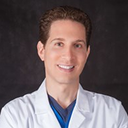Twitching eyelid after blepharoplasty. Should I be worried?
I have twitching in one eyelid that started six weeks after blepharoplasty and has continued for two weeks. Is this something to be worried about?
I have twitching in one eyelid that started six weeks after blepharoplasty and has continued for two weeks. Is this something to be worried about?

What’s trending? Who’s turning heads? Which TikTok myths need busting? We’ve got you. No fluff, no gatekeeping—just real talk. Get our free, unfiltered newsletter.